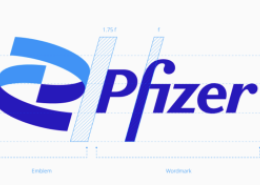Lipitor Provides Unprecedented Cardiovascular Risk Reductions in Diabetes Patients with Metabolic Syndrome and in Stroke Patients
Lipitor is the Only Statin to Have Been Studied Solely in Patients with Recent Stroke or Mini-stroke
(BUSINESS WIRE)--Pfizer announced today that Lipitor® (atorvastatin calcium) Tablets 10 mg provided a significant 61 percent reduction in stroke in patients with type 2 diabetes and metabolic syndrome but without heart disease. In a separate study, patients who had suffered a recurrent stroke or mini-stroke during the trial had a significant 53 percent reduction in the risk of major coronary events (death from cardiac causes, heart attack, or resuscitation after cardiac arrest) with Lipitor 80 mg. These analyses from two landmark clinical outcomes studies were presented at the annual meeting of the American College of Cardiology.
“What’s impressive is the magnitude of cardiovascular efficacy, including a 61 percent reduction in the risk of stroke, that Lipitor offered these patients who were at high risk for cardiovascular events,” said Professor John Betteridge, a lead author of CARDS and professor of endocrinology and metabolism at University College London Hospital.
“These results add to the unique and robust body of evidence for Lipitor that includes proven reductions in heart attacks and strokes, impressive average LDL lowering of 39 percent to 60 percent, and an established safety profile across a broad range of patients,” said Dr. Michael Berelowitz, senior vice president of Pfizer’s global medical division.
New Analysis of the Collaborative Atorvastatin Diabetes Study (CARDS)
In a new analysis of more than 2,200 patients with type 2 diabetes who met the criteria for metabolic syndrome in CARDS:
- Lipitor 10 mg provided a significant 41 percent reduction in the risk of major cardiovascular events (death from coronary heart disease, heart attacks, strokes, certain types of heart surgery, chest pain) compared with placebo.
- Lipitor 10 mg provided a significant 61 percent reduction in the risk of stroke compared with placebo.
About Metabolic Syndrome
Metabolic syndrome was defined in this analysis using the International Diabetes Federation criteria of central obesity and two or more of the following conditions: diabetes, treated hypertension or high blood pressure, high triglyceride and low levels of good cholesterol (HDL).
Nearly 47 million Americans currently live with metabolic syndrome according to the American Heart Association. According to the International Diabetes Foundation, a quarter of the world’s adults have metabolic syndrome and people with metabolic syndrome are twice as likely to die from, and three times as likely to have, a heart attack or stroke compared with people without the syndrome.
New Analysis of the Stroke Prevention by Aggressive Reduction in Cholesterol Levels (SPARCL) study
A new SPARCL analysis was conducted to evaluate if treatment with Lipitor 80 mg was associated with significant protection from coronary events after a recurrent stroke or mini-stroke. In more than 850 patients who suffered a recurrent stroke or mini-stroke during the trial:
- Lipitor 80 mg reduced patients’ risk of experiencing major coronary events (death from cardiac causes, heart attack, or resuscitation after cardiac arrest) by 53 percent compared with placebo.
The benefits of Lipitor 80 mg in patients with a recurrent stroke or mini-stroke seen in this analysis are consistent with the primary SPARCL results which demonstrated the benefit of Lipitor 80 mg in reducing stroke and coronary events among all patients in the study (n=4,731).
About Stroke
Stroke is the third leading cause of death and the leading cause of adult disability in the United States and industrialized European nations. About 700,000 Americans and 1.1 million Europeans suffer from a stroke or mini-stroke annually.
According to a recent article in the journal Neurology, many patients hospitalized with stroke or mini-stroke, including those with known high cholesterol and those taking lipid lowering agents, have an LDL level that is higher than recommended in national treatment guidelines. Stroke patients with coronary heart disease are at the greatest risk of cardiovascular events yet are the least likely to be at guideline-recommended LDL levels. The authors suggest that future guidelines for lipid management may require additional revision to reflect the results of newer trials such as SPARCL that support the use of statins in stroke patients without coronary heart disease.
About the Overall CARDS Study
The CARDS study, published in The Lancet in 2004, evaluated patients (n=2,838) with type 2 diabetes who did not have existing cardiovascular disease, but had one or more risk factors for it. Lipitor 10 mg significantly reduced the risk of major cardiovascular events by 37 percent and the risk of stroke by 48 percent compared with placebo.
In CARDS, Lipitor was well-tolerated. The overall frequency of adverse events or serious adverse events did not differ between Lipitor and placebo.
About the Overall SPARCL Study
The SPARCL study, published in the New England Journal of Medicine in 2006, is the only study to date evaluating the benefits of a statin solely in patients with a prior stroke or mini-stroke (n=4,731). Lipitor 80 mg reduced the risk of an additional stroke by 16 percent and major coronary events by 35 percent compared with placebo. In a post-hoc analysis of the SPARCL trial, there was a higher incidence of hemorrhagic stroke in patients taking Lipitor 80 mg compared with patients taking placebo. Patients with prior hemorrhagic stroke at study entry appeared to be at an increased risk of hemorrhagic stroke.
In SPARCL, Lipitor was well-tolerated. The rate of side effects such as elevated liver enzymes, muscle weakness or rhabdomyolysis were low and consistent with the known safety profile.
About Lipitor
Lipitor is the most extensively studied and most prescribed cholesterol-lowering therapy in the world, with nearly 133 million patient-years of experience. Lipitor is supported by an extensive clinical trial program involving more than 400 ongoing and completed trials with more than 80,000 patients.
Important US Prescribing Information
Lipitor is a prescription medication. It is used in patients with multiple risk factors for heart disease such as family history, high blood pressure, age, low HDL (“good” cholesterol) or smoking to reduce the risk of a heart attack, stroke, certain types of heart surgery and chest pain.
Lipitor is also used in patients with type 2 diabetes and at least one other risk factor for heart disease such as high blood pressure, smoking or complications of diabetes, including eye disease and protein in urine, to reduce the risk of heart attack and stroke.
Lipitor is used in patients with existing coronary heart disease to reduce the risk of heart attack, stroke, certain kinds of heart surgery, hospitalization for heart failure, and chest pain.
When diet and exercise alone are not enough, Lipitor is used along with a low-fat diet and exercise to lower cholesterol.
Lipitor is not for everyone. It is not for those with liver problems. And it is not for women who are nursing, pregnant or may become pregnant.
Patients taking Lipitor should tell their doctors if they feel any new muscle pain or weakness. This could be a sign of rare but serious muscle side effects. Patients should tell their doctors about all medications they take. This may help avoid serious drug interactions. Doctors should do blood tests to check liver function before and during treatment and may adjust the dose. The most common side effects are gas, constipation, stomach pain and heartburn. They tend to be mild and often go away.
For additional product information, visit www.Lipitor.com.
Vanessa Aristide, 212-733-3784
Rebecca Hamm, 212-733-8811
Onsite: 917-599-7752








